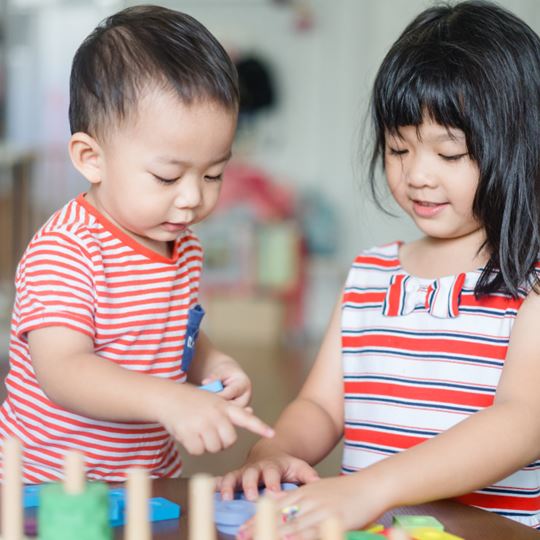Fostering siblings is a unique and complex role that comes with its own set of challenges. While the relationship of siblings is incredibly valuable and important, it can also be complicated by the trauma and disruptions experienced by children in foster care. Here, we'll look at the challenges of fostering siblings as well as strategies and steps to overcome them. By focusing on building strong and healing sibling relationships, we can create a nurturing environment where these children can thrive and become resilient individuals with a promising future.
Why are sibling relationships important?
Sibling relationships hold immense importance for children in care. When placed in foster care, these children often face feelings of loss, instability, and uncertainty. Siblings provide a sense of familiarity, comfort, and continuity during this difficult time. Maintaining and nurturing sibling relationships can offer a source of emotional support, companionship, and a shared history that no one else can fully understand. Siblings serve as pillars of strength, providing a constant presence and a sense of belonging during times of transition. These relationships can promote resilience, as siblings can draw strength from one another, share coping strategies, and navigate the ups and downs of their unique circumstances together.
Good sibling relationships also play a significant role in a child's development and overall well-being. They contribute to a child's identity formation and self-esteem, providing a strong foundation for their social and emotional development. This is why it’s so important to keep siblings together where possible.
Main challenges of siblings in foster care
When siblings are placed in foster care, they may face numerous challenges that can strain their relationships. It’s important that foster parents are aware of these barriers and understand how to overcome them to ensure the children in their care have a loving and healing sibling relationship that can help improve their future. Here are the main things to watch out for when fostering siblings:
Separation trauma
Being separated from their biological family and potentially from each other can cause emotional distress and feelings of loss. Siblings may experience grief and confusion as they adjust to new family dynamics and living arrangements.
Trauma and emotional needs
Siblings who enter foster care often have experienced trauma, neglect, or abuse. They may carry emotional wounds and exhibit challenging behaviours because of this. Meeting the unique emotional needs of multiple children and helping them heal requires sensitivity, patience, and specialised support.
Rivalry and competition
Siblings may have experienced competition for limited resources or attention in their previous environment, leading to conflicts and strained relationships. They may have developed defensive mechanisms or learned patterns of behaviour that hinder positive interactions.
Attachment issues
Trauma and instability can hinder the development of secure attachments between siblings, making it difficult to form trusting relationships. Children in foster care may have experienced neglect, abuse, or inconsistent caregiving, which can impact their ability to form healthy attachments with their siblings, foster parents and other people around them. Building trust and fostering healthy attachments can be a complex process that requires consistency, reassurance, and understanding.
Individual needs
Each sibling within a group may have unique needs, personalities, and challenges. It can be a challenge for foster parents to address these individual needs while also fostering a sense of equality and fairness. Balancing attention, resources, and support among siblings requires careful consideration and flexibility.
Placement disruptions
Finding a foster placement that can accommodate all siblings together can be challenging. In some cases, siblings may be separated, leading to additional emotional distress and adjustment difficulties. Maintaining sibling connections and ensuring regular visitation can be crucial but may face logistical barriers if it’s deemed in the children’s best interests to remain apart. At Fosterplus, we have a very careful and considered approach to the matching process and placing children into foster homes, which means we have a very low rate of unplanned endings. We only want the best outcomes, and we believe that starts with the best possible placement match.
Encouraging collaboration and cooperation.
Engage siblings in shared activities that promote teamwork, problem-solving, and cooperation. This could include playing cooperative games, engaging in group projects, or participating in shared household chores. By emphasising collaboration, siblings learn to work together, respect each other's contributions, and develop a sense of unity.
Complex family dynamics
Siblings in foster care often come from complex family backgrounds. Navigating the dynamics of their biological family relationships, including contact with parents or other relatives, can be challenging. Foster parents must manage these complexities while providing stability and nurturing sibling relationships.
Education
Looking after siblings may mean you need to deal with different schools at the same time. Coordinating school placements, individualised educational plans and extracurricular activities can be demanding and require effective communication and advocacy. At Fosterplus, we ensure our foster parents are supported by education advisors and know where to turn to if they have a query or concern about their young person’s education.
Age gaps and older sibling caregivers
Older siblings who had to take on a caregiver role to their younger siblings may find it difficult to transition back to being in a parent-child dynamic. You need to build trust so that they feel comfortable allowing you to be their foster parent, and that they don’t need to be the caregiver anymore. On the other hand, there might be a large age gap between siblings, which creates emotional distance. This means you may need to teach older kids how to engage with and support their younger siblings so healthy bonds can be made.
Addressing these challenges requires foster parents to have a deep understanding of trauma-informed care, effective communication skills, and the ability to create a safe and nurturing environment. At Fosterplus, we’re always here for you to give you the support and training you need. Our dedicated social workers, access to therapists and other childcare professionals mean you can support the unique needs of each sibling and promote their overall well-being.
Strategies for building sibling relationships
Here are some ways on how to improve relationships with siblings and create a loving, friendly and productive environment where they can thrive.

Healing sibling relationships that are difficult
It’s not always easy to know how to deal with difficult sibling relationships. Healing difficult sibling relationships in foster children is a process that entails creating a safe and nurturing environment where open communication, empathy, and understanding are actively promoted. It involves:
- promoting positive interactions between siblings
- teaching them essential conflict resolution skills
- providing individualised support tailored to their unique needs
Foster parents play a crucial role in helping these children navigate their challenges, process their emotions, and develop healthier ways of relating to each other. With patience, persistence, and commitment to their well-being, foster children can gradually begin to heal, rebuild trust, and form stronger sibling bonds that contribute to their overall emotional growth and resilience. By recognising that healing takes time and requires consistent effort, foster parents have the opportunity to make a lasting positive impact on the lives of these siblings, nurturing their connections and providing a solid foundation for their future relationships.

Could you help us keep siblings together?
Fostering siblings presents its share of challenges, but with dedication, patience, and a thoughtful approach, it is possible to build strong and healthy sibling relationships. Recognising the importance of good sibling relationships and implementing strategies to address the challenges they face can create a nurturing environment where these children can thrive emotionally and socially. Remember, sibling relationships have the power to shape a child's life and provide a lifelong source of support and companionship.
At Fosterplus, we always strive to nurture and strengthen these relationships, ensuring that each child in our care has the opportunity to experience the love, stability, and lasting sibling connections they deserve.
If you think you could give children a safe and nurturing home, we’d love to hear from you. Please get in touch today and see if fostering siblings is right for you.